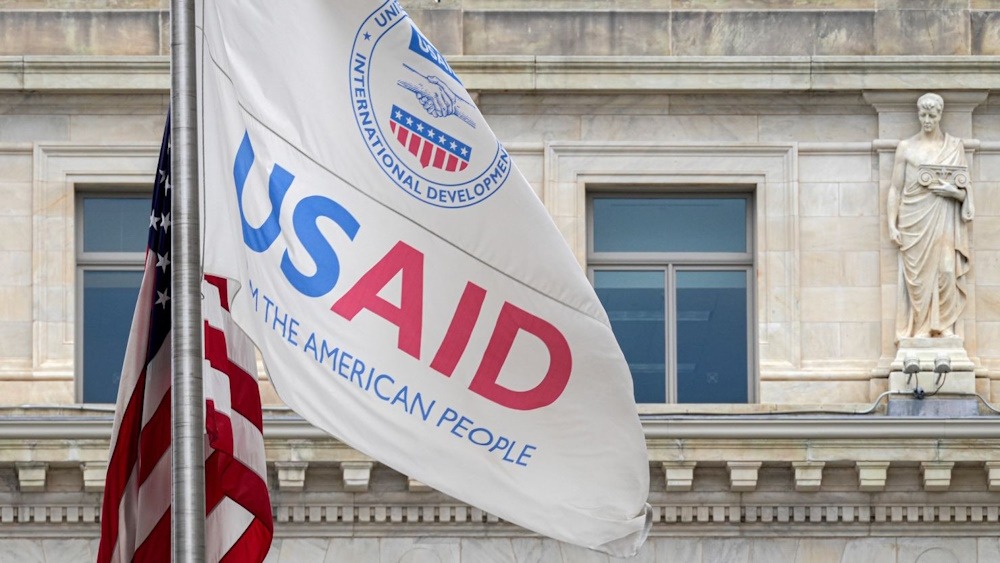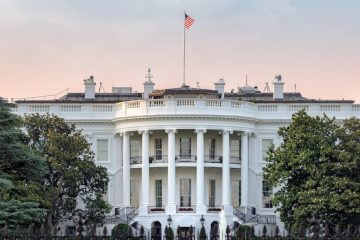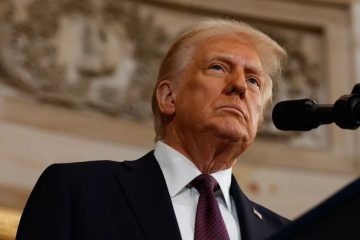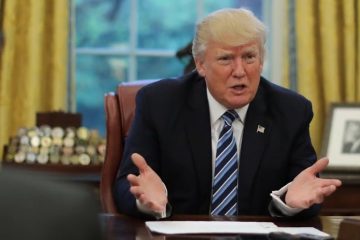Trump dismantled $40 billion USAID in a fortnight

The rapidity of the cuts was such that a dismissed employee had to be reinstated to manage the processing of time sheets for other staff members. Images depicting initiatives financed by the U.S. Agency for International Development globally—such as young girls engaging in soccer in South America and families receiving food aid in eastern Africa—have been removed, leaving behind only strips of nails and vacant picture frames against stark white walls. In a span of under two weeks, the Trump administration effectively unraveled the efforts of a 10,000-strong, $40 billion foreign-assistance agency, along with the myriad individuals in nonprofits and other organizations collaborating with it. By Monday, the agency’s principal building had been shuttered, and its website dismantled. On Tuesday, USAID’s Washington facilities were shuttered as the agency geared up to place nearly all of its remaining 1,400 employees on administrative leave, according to two officials.
The situation with USAID serves as a litmus test for the Trump administration’s ability to overhaul a long-established agency while navigating minimal legal or political pushback. At this juncture, the response appears to be affirmative. Certain external organizations assert that they are unable to receive compensation for services rendered in the past. The remaining officials are diligently forwarding overdue invoices, attempting to navigate the delicate balance between the risk of contravening a directive from President Trump and adhering to federal contracting regulations.
Stefanie Leigh Plant, a 40-year-old contractor for USAID’s global health program, received notification of her termination through email, with her health insurance coverage terminated shortly thereafter, just three days later. “It was at that moment that disbelief started to take hold,” she remarked. Images have been taken down from the walls of USAID’s office.
Founded in 1961, USAID has been instrumental in financing initiatives aimed at controlling disease outbreaks and lowering child mortality rates, alongside various other assistance programs. The agency has maintained its separation from the State Department for decades, partly to prevent the perception that aid is directly linked to diplomatic demands. The objective has collided with Trump’s America First strategy and Elon Musk’s initiative for Government Efficiency, which aims to reduce government expenditures by billions of dollars. The Trump administration has initiated the integration of USAID into the State Department, with Secretary of State Marco Rubio assuming the role of acting administrator. Senate Foreign Relations Chair Jim Risch, a Republican from Idaho, expressed his support for the consolidation of the two entities. On Monday, several Democratic lawmakers advocating for USAID attempted to gain access to the building, only to be barred by security personnel. “Is DOGE included?” one of the lawmakers inquired.
“One cannot simply dismiss an agency one finds disagreeable through executive order or by forcefully entering its premises,” remarked Sen. Brian Schatz (D., Hawaii). The White House issued a statement on Monday asserting that for decades, USAID has operated with a lack of accountability to taxpayers, channeling substantial funds into what it described as the absurd—and often harmful—pet projects of established bureaucrats. Veteran officials from USAID conceded that the mechanisms for aid distribution may exhibit inefficiencies. The Trump administration highlighted instances of U.S. dollars being allocated to support diversity, equity, and inclusion initiatives in Serbia, as well as a transgender opera in Colombia.
Officials from USAID and DOGE did not provide comments when approached for their perspectives. A spokesperson for the State Department refrained from providing further commentary beyond the recent remarks made by Rubio. As representatives from DOGE traversed the premises, certain USAID personnel expressed uncertainty regarding the identities of those involved in the operation, speculating that some individuals might be attired in formal suits while others donned puffer jackets.
Matthew Kavanagh, director of the Center for Global Health Policy and Politics at Georgetown University, noted that while certain actions taken by the Trump administration, including the furloughing of contractors, fall within legal boundaries, others seem to encroach upon the authority of Congress. “They perceive the U.S. aid agencies and infrastructures as less robust than other governmental entities, prompting them to explore the limits of what they can exploit,” Kavanagh remarked.
Following Trump’s election in November, employees at USAID anticipated forthcoming changes; however, those with experience in previous Republican administrations noted that alterations to their programs were often less severe than initially expected. On January 24, when Trump not only suspended new foreign-aid funding but also imposed a stop-work order—thereby obstructing external organizations from utilizing previously allocated U.S. funds—it became evident that this instance would diverge from past practices. Organizations dependent on USAID financing have enacted significant staff reductions, resulting in the dismissal of hundreds of employees.
According to employees and contractors, work that was suspended encompassed the United States’ initiatives to curb the transmission of an Ebola outbreak in Uganda, a Marburg virus disease outbreak in Tanzania, and a multicountry outbreak of Mpox. Last week, a significant number of employees at a field hospital in Gaza were unexpectedly dismissed, according to Adam Hamawy, a plastic surgeon operating in the vicinity. The hospital administrator communicated via text message to the dismissed employees, informing them of a final payment of $400.
Waivers have been issued to facilitate the disbursement of funds for specific emergency humanitarian initiatives. However, both employees and recipients report a lack of clear guidance regarding the criteria for program eligibility. “This is not about eliminating foreign aid,” Rubio stated on Fox News on Monday. “Certain initiatives undertaken through USAID are both sensible and should be sustained.” Senator Chris Murphy, representing Connecticut, one of the legislators opposing the USAID cessation on Monday, indicated that the halt in operations has interrupted the supply of firewood to Ukrainian troops stationed at the front lines.
On January 27, approximately 60 senior career employees, among them ethics and employment lawyers, were placed on administrative leave and escorted from the Ronald Reagan building in downtown Washington, compelled to surrender their security badges required for exit. On Monday, access to the USAID headquarters was denied to lawmakers. Nicholas Gottlieb, the director of employee and labor relations at the agency, subsequently communicated via email that upon review, he deemed the decision to place numerous senior employees on leave as unwarranted, noting a lack of evidence supporting any allegations of misconduct. Two hours later, he sent an email indicating that he had also been placed on leave, as reported by employees.
On January 28, a significant number of contractors were dismissed from their positions. Last week, a directive was issued mandating the removal of all artwork across the organization. Officials at USAID anticipate that a forthcoming announcement will result in an increased number of personnel being placed on administrative leave. Termination notices frequently arrived beyond standard working hours. Several contractors began to learn that their peers had been let go earlier in the day, anxiously observing the passage of time until their own termination notices were delivered later that evening. For some abroad, dismissal has necessitated efforts to navigate the complexities of returning to the U.S. with their families.
On Saturday, representatives from DOGE attempted to gain entry to sensitive systems within the USAID facility in Washington. Security officials at the agency were initially reluctant to acquiesce to the DOGE team’s requests, which, according to sources familiar with the matter, encompassed demands for access to personnel information. According to sources familiar with the matter, security officials John Voorhees and his deputy were subsequently placed on administrative leave due to their failure to comply. “We dedicated the weekend to dismantling USAID,” Musk remarked on social media. “USAID operates with questionable legitimacy.”









